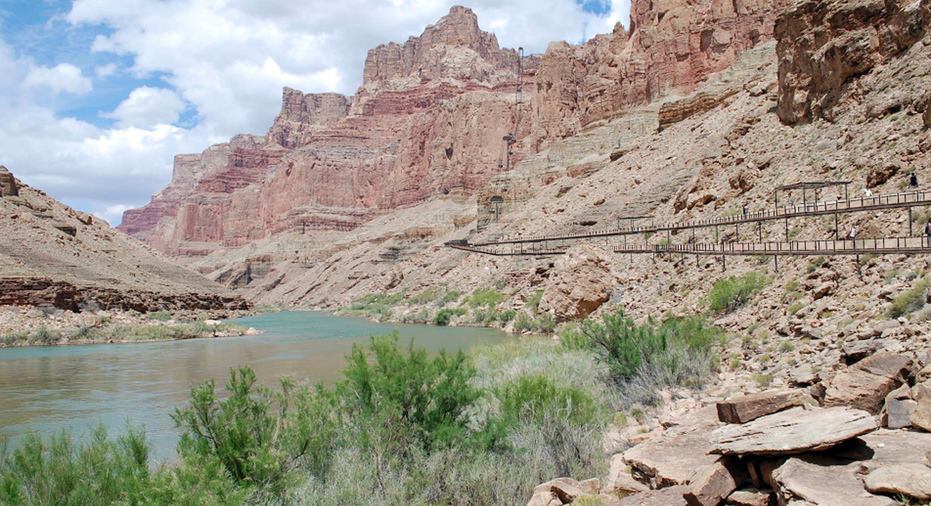Tribe rejects plan to build tram, hotel in Grand Canyon

Legislation to build an aerial tram to take paying visitors to a riverside boardwalk in the Grand Canyon has been voted down by the Navajo Nation Council.
Members of the council voted 16-2 against the bill during a special session Tuesday in Window Rock, Arizona. It was the first time the full council had taken up the measure since it was introduced last year.
The proposal had gotten a cold reception from lawmakers from the nation's largest American Indian reservation even before Tuesday's lengthy debate.
Some lawmakers raised concerns about the development resulting in more public safety demands, while others questioned a requirement for the tribe to invest $65 million for roads, water and power lines, and communications at the 420-acre site that borders Grand Canyon National Park on the reservation.
Council delegates amended the legislation to change the operating license from non-revocable to revocable, to delete language to prevent other development within a 15-mile radius and along access roads, and to strike a non-taxation provision before voting on the bill. The amendments didn't convince them the project should move forward.
Developers had said the tram and accompanying retail and hotel sites at the East Rim could be running by May 2021 had everything gone as planned. They did not immediately return phone messages seeking comment after the vote.
Critics showed up to urge lawmakers to oppose the project as the debate finally got under way late Tuesday afternoon. Those included families who hold grazing permits and leases to build homes in the area.
They have said the area is sacred and the proposed development would mar the landscape where the Colorado River meets the blue-green waters of the Little Colorado River.
Declaring victory over what they termed a "monster," they praised the council's vote on social media and let out loud cheers outside the council chambers.
"They heard us," activist Renae Yellowhorse said of the council members. "We needed to be a presence there to let them know we're not going to go away. We're going to always be here to defend our Mother, to defend our sacred sites."
Environmentalists and outdoor enthusiasts also decried the measure. Actor Robert Redford released a video last December voicing opposition, and an online petition against the proposal has collected thousands of signatures.
The vote came ahead of a tribal election year and as the tribe prepares for the loss of hundreds of jobs with the expected shutdown of a coal-fired power plant and its supply mine in 2019.
Lamar Whitmer, part of the Scottsdale-based Confluence Partners development group, previously said the East Rim project could employ up to 3,500 people on a reservation where half the workforce is unemployed.
The management team includes former Navajo President Albert Hale and others who have helped develop resorts and theme parks.
Under the legislation, the Navajo Nation's share of revenue was based on the number of visitors. The tribe would have been guaranteed a minimum 8 percent of gross revenue, developers say.
___
Associated Press writer Susan Montoya Bryan in Albuquerque, New Mexico, contributed to this report



















